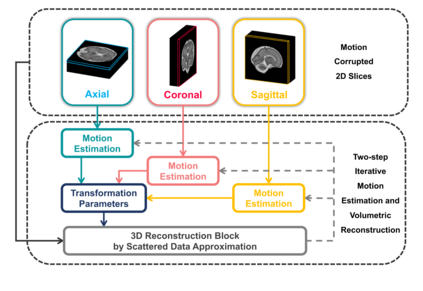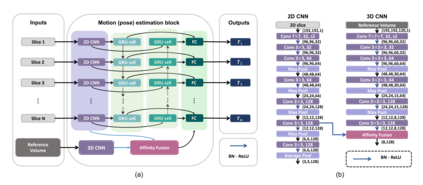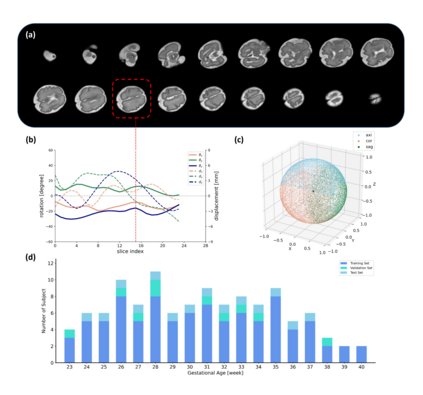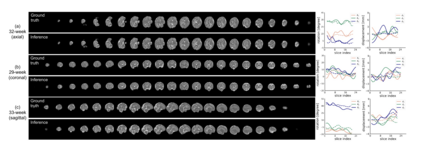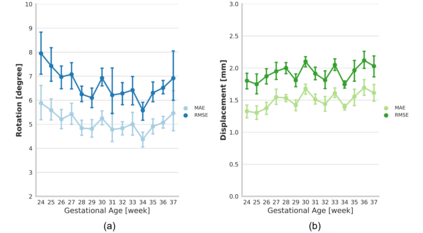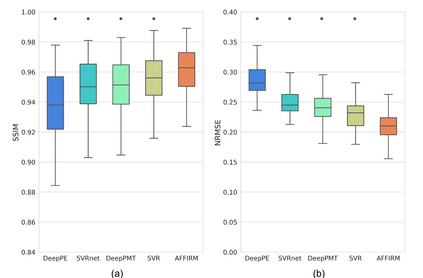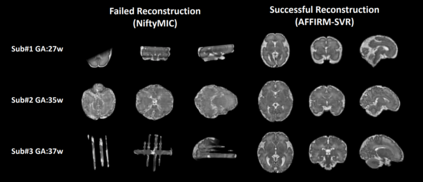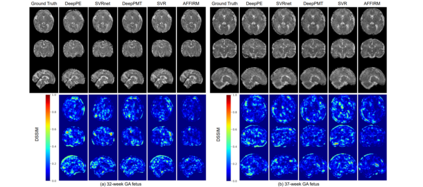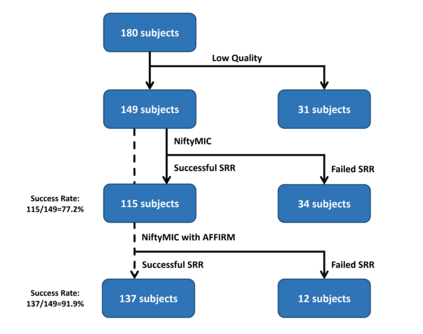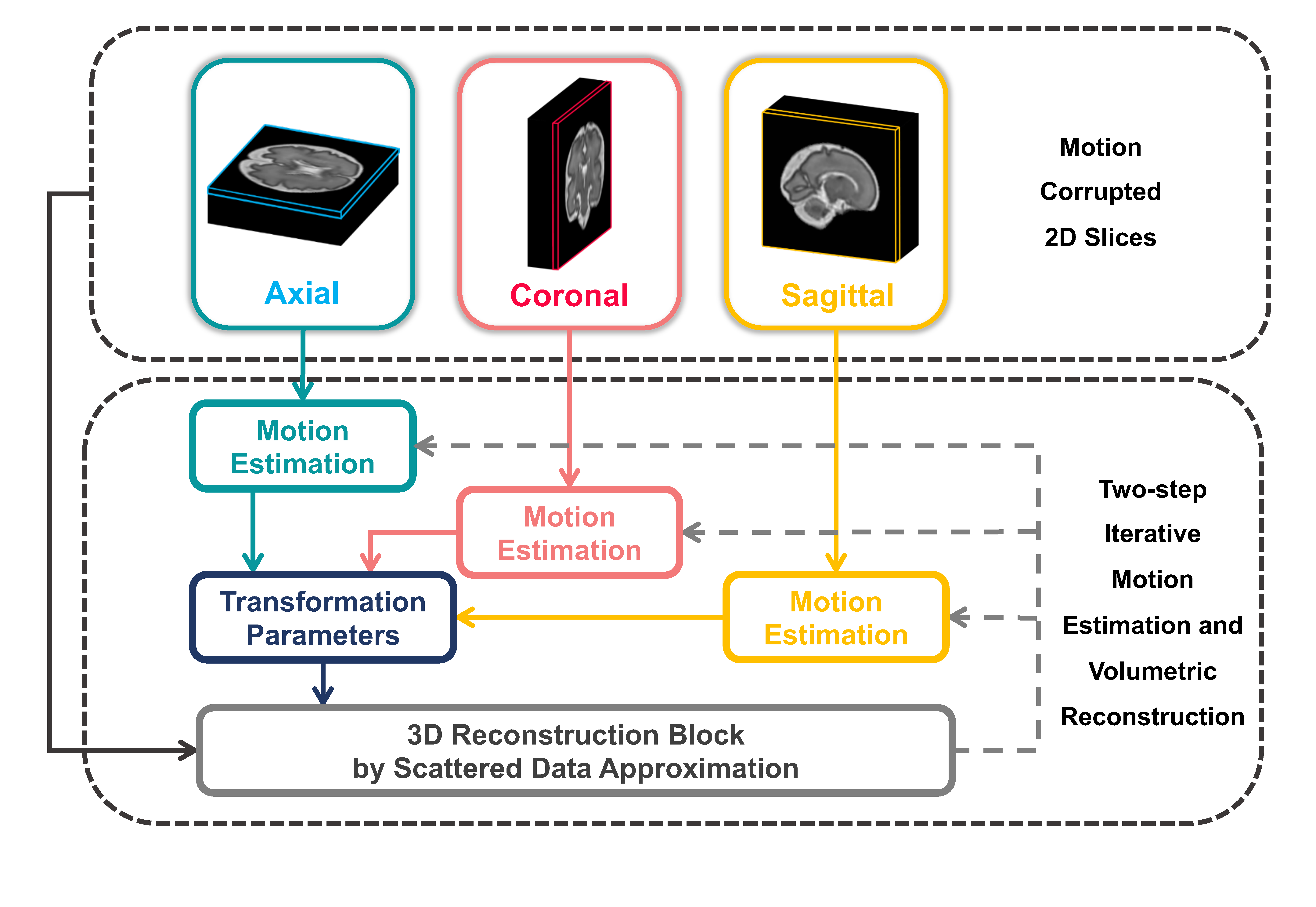Multi-slice magnetic resonance images of the fetal brain are usually contaminated by severe and arbitrary fetal and maternal motion. Hence, stable and robust motion correction is necessary to reconstruct high-resolution 3D fetal brain volume for clinical diagnosis and quantitative analysis. However, the conventional registration-based correction has a limited capture range and is insufficient for detecting relatively large motions. Here, we present a novel Affinity Fusion-based Framework for Iteratively Random Motion (AFFIRM) correction of the multi-slice fetal brain MRI. It learns the sequential motion from multiple stacks of slices and integrates the features between 2D slices and reconstructed 3D volume using affinity fusion, which resembles the iterations between slice-to-volume registration and volumetric reconstruction in the regular pipeline. The method accurately estimates the motion regardless of brain orientations and outperforms other state-of-the-art learning-based methods on the simulated motion-corrupted data, with a 48.4% reduction of mean absolute error for rotation and 61.3% for displacement. We then incorporated AFFIRM into the multi-resolution slice-to-volume registration and tested it on the real-world fetal MRI scans at different gestation stages. The results indicated that adding AFFIRM to the conventional pipeline improved the success rate of fetal brain super-resolution reconstruction from 77.2% to 91.9%.
翻译:胎儿大脑多切磁共振图像通常受到严重和任意的胎儿和母体运动的污染。 因此,稳定和稳健的运动校正对于重建高分辨率 3D 胎儿大脑体积以进行临床诊断和定量分析十分必要。 但是,常规的注册校正的捕捉范围有限,不足以检测出相对较大的运动。 这里, 我们展示了一个新的基于亲近性的聚合框架( AFFIRM) 的多切肢脑MRI校正。 它从多个切片堆中学习了相继运动,并结合了2D切片和3D体体体积之间的特征,并使用亲近性聚合来重建3D体体积,这类似于切片至体积登记和定期管道体积重建之间的重复。 这个方法准确地估计了运动的动向,而不管大脑方向如何超越了其他基于状态的学习成功率, 模拟运动腐烂的大脑大脑MRI数据中,48.4%的绝对值误差,61.2%用于迁移。 我们随后将AFFIRMM的绝对值调整后, 的软体压比例升级为M 。

